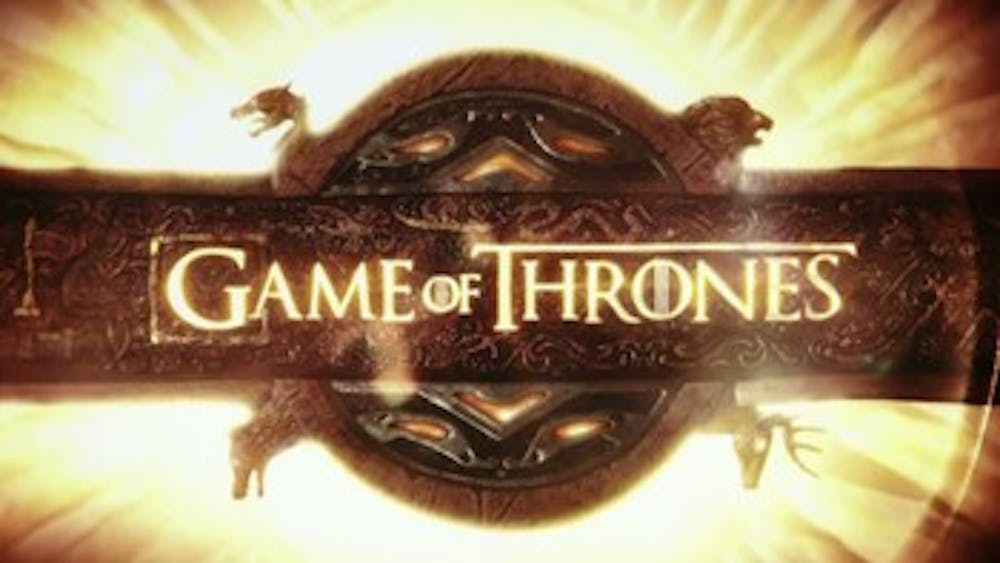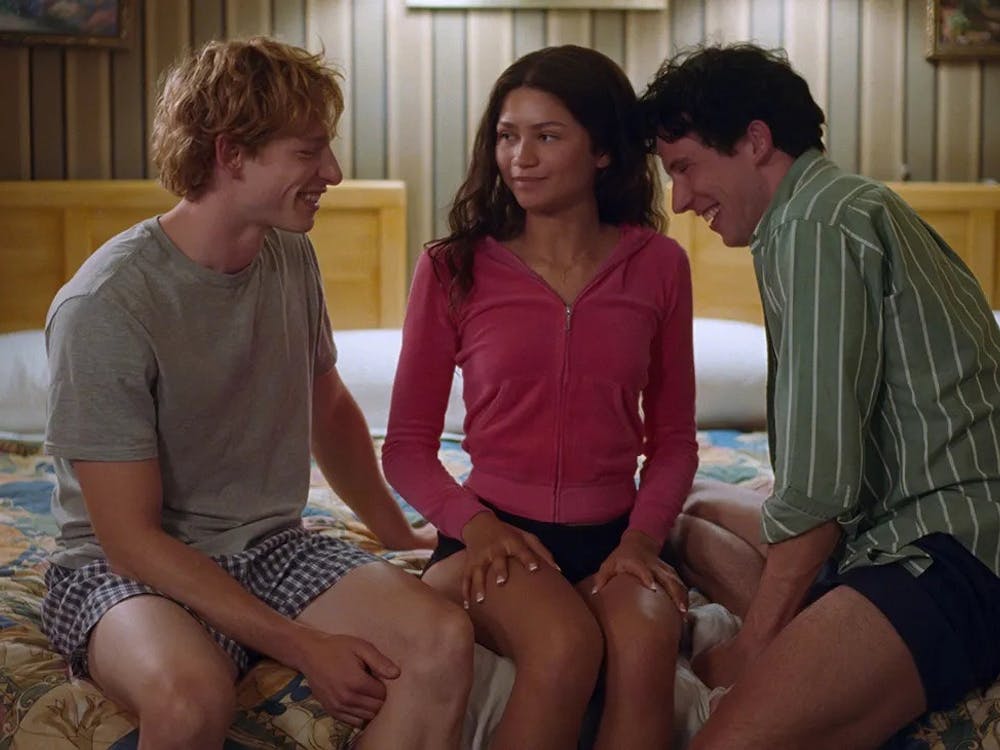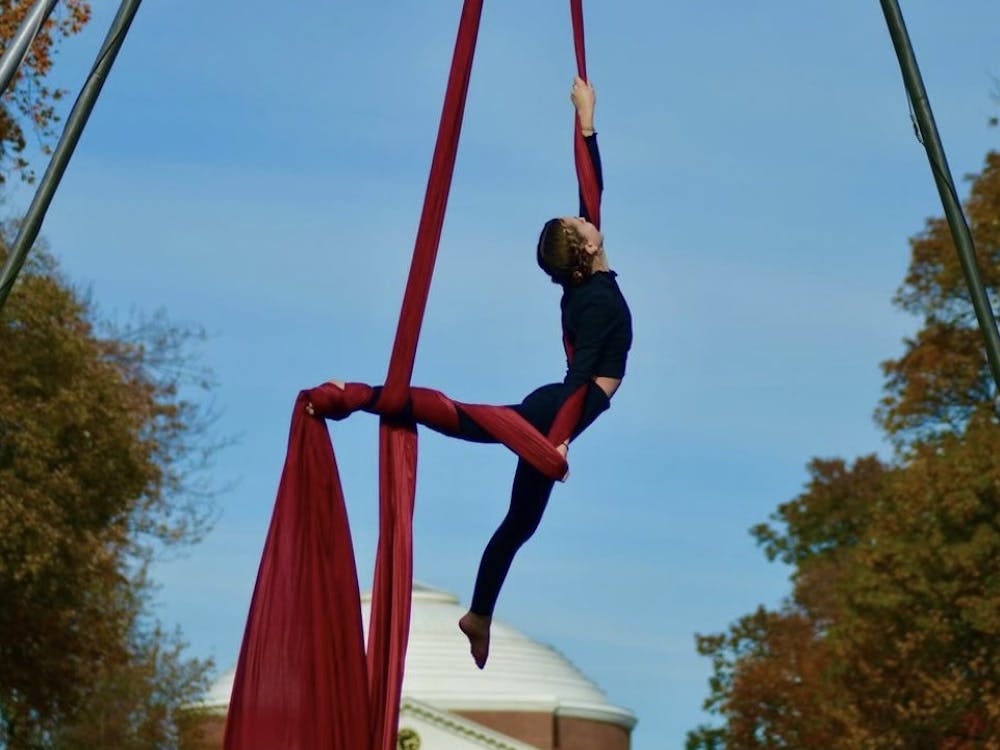WARNING: Spoilers follow for “Game of Thrones” up to season seven, episode five, “Eastwatch.”
Six years ago, it would have been easy to write off “Game of Thrones’” potential for small-screen domination. Its scope is staggeringly broad, following television’s largest ensemble cast from double-crossing royal courts to snowbound wastelands of the undead, and becoming invested in the show’s central conflict requires comprehension of at least 100 years’ worth of backstory. And the world of Westeros is no escapist fantasy realm — it’s an unremittingly grim analogue to medieval Europe in which women are routinely exploited, fan favorites are regularly killed off and a state of bloody warfare has been the status quo for the last five seasons or so. It’s not a world in which you’d think anyone would willingly choose to live. And yet every Sunday at 9 p.m., millions of watchers do.
To be sure, “Thrones” is far from the objectively best show on television, even when solely compared against dramas from its own network. Showrunners David Benioff and D.B. Weiss are ambitious but far from brilliant — their scripts rarely contain the knack for dialogue of past HBO scribes such as David Simon. Simon was the mind behind “The Wire,” another series that approached a gritty universe — albeit a real one, the city of Baltimore — with epic breadth. And despite the show’s ‘anyone can die!’ attitude and willingness to put its most beloved characters through a veritable conga line of trauma, the writing rarely makes room for the kind of genuine insight on grief that distinguished past fantastic, mortality-minded dramas such as “Six Feet Under” or “The Leftovers.”
The show’s flaws manifest themselves in more obvious ways as well — the most egregious of these being gratuitous depictions of rape and eroticized violence against women. Instances include the fifth season’s finale episode, “Mother’s Mercy,” which contains the infamously cringe-worthy line, “you want a nice girl, but you need the bad pussy” — yet still won the Emmy that year for Best Writing in a Drama Series — as well as the show’s occasionally groan-worthy use of “sexposition,” a narrative technique that serves little purpose apart from covering up lazy screenwriting with a lowest-common-denominator appeal to titillation.
Perhaps the most frustrating thing about these cheap, ill-conceived moments is that they are purely extraneous to the show’s continued success. For all its fantasy trappings, the series’ true power has always laid in its human element — in getting us to truly, madly and deeply emotionally invest ourselves in the families squabbling over the titular Iron Throne. In the structure of its dynastic drama, “Thrones” most closely resembles another HBO forebearer, David Chase’s “The Sopranos” — another series with a sprawling ensemble cast that focused on a family struggling to survive and amass power in a ruthless world, often through unscrupulous means. Yet one of “Thrones’” smartest moves was choosing to kill off its Tony Soprano in the first season, before he got the chance to truly become its Tony Soprano — the noble yet overly trusting Northern lord Ned Stark (Sean Bean).
The series shines brightest when it plays with high fantasy archetypes only to turn them on their heads. After Ned’s execution at the hands of sadistic, bratty King Joffrey, scion of the wealthy, politically connected House Lannister, his eldest legitimate son Robb (Richard Madden) revolts and declares himself King in the North.
It all seems textbook Hero’s Journey material — the paternal mentor figure is sacrificed so his younger, more heroic successor can achieve his destiny and avenge him — except when Robb impulsively marries Talisa (Oona Chaplin), a common-born woman he falls in love with, breaking a marriage alliance with another ruling house who gets payback by slaughtering him, his wife, his mother and advisor Catelyn (Michelle Fairley), and the rest of his army at a wedding feast. His youthful valor is the hamartia that ultimately causes his downfall.
The event, christened the “Red Wedding,” was genuinely heartbreaking when it aired in 2013, partially because of the sheer level of carnage but mostly because it seemed, in retrospect, so dramatically inevitable — we were so well-acquainted to the rules of epic sword-and-sorcery sagas that we didn’t realize we were watching a classical tragedy, too.
In its aftermath, the teenage daughters of House Stark become arguably the most dynamic characters onscreen. Sweet, idealistic Sansa (Sophie Turner) and misfit tomboy Arya (Maisie Williams) become self-actualized through trials by fire. While Sansa begins the story as the kind of romantic-minded, traditionally feminine heroine who eagerly awaits marrying a prince and would be considered clueless by modern feminist sensibilities, her harrowing experiences in a hostile royal court and abusive marriages to tyrannical man-children harden her into a savvy political operator. Arya, on the other hand, finally finds purpose by becoming a merciless assassin who keeps a “Kill Bill”-esque list of the people responsible for killing her family in order to hunt them down.
After years apart, they finally reunite in their ancestral home of Winterfell just a few weeks prior in “The Spoils of War.” When they finally reconnect — in the family crypt, no less, while they both gaze at a statue of their dead father and realize that they’re still strangers to each other — it’s a moment that feels bittersweet, painful and long-earned.
The other two main heroes — the broody Jon Snow (Kit Harington), a Stark bastard turned unlikely King in the North and Daenerys Targaryen (Emilia Clarke), an exiled princess with three trained dragons who believes the throne is rightfully hers — feel more like distant, messianic figures rather than real and imperfect people. They have always been marked for greatness. Viewers know at heart that they will survive, or at least get stunningly cathartic endings (Jon has already died once — stabbed by his men, “Julius Caesar”-style, at the end of season five — but as much as the show tried to milk dramatic suspense from the moment, nobody was surprised when he was resurrected in the sixth season).
As “Thrones” reaches its final stretch in its seventh season, its plotlines have accelerated to near-breakneck pace. Reunions that have been years in the making are now every few episodes, journeys that once would have been stretched over half a season have been compressed to 40 minutes, and the field vying for the crown has thinned out to two distinct factions. The grand existential showdown between good and evil, living and dead, is beginning to feel inevitable. But for all “Thrones’” trademark unpredictability, viewers can’t get enough because of their undying faith in a happy ending.
After all, in “Thrones,” evil always gets a brutal, karmic end — whether it’s being excruciatingly poisoned at your own wedding, eaten alive by your hunting dogs or getting your throat slit after eating pie made from your own sons. And innocent people, even if repeatedly traumatized or killed, never truly suffer in vain — they endure and become stronger, or are at least avenged by their family. The moral universe of “Thrones” is surprisingly comforting, especially amidst the uncertain reality of the current political climate, where wicked, stupid men in power go unpunished. And despite everything that our world has on Westeros, it’s still a much less dramatically satisfying place to live.





